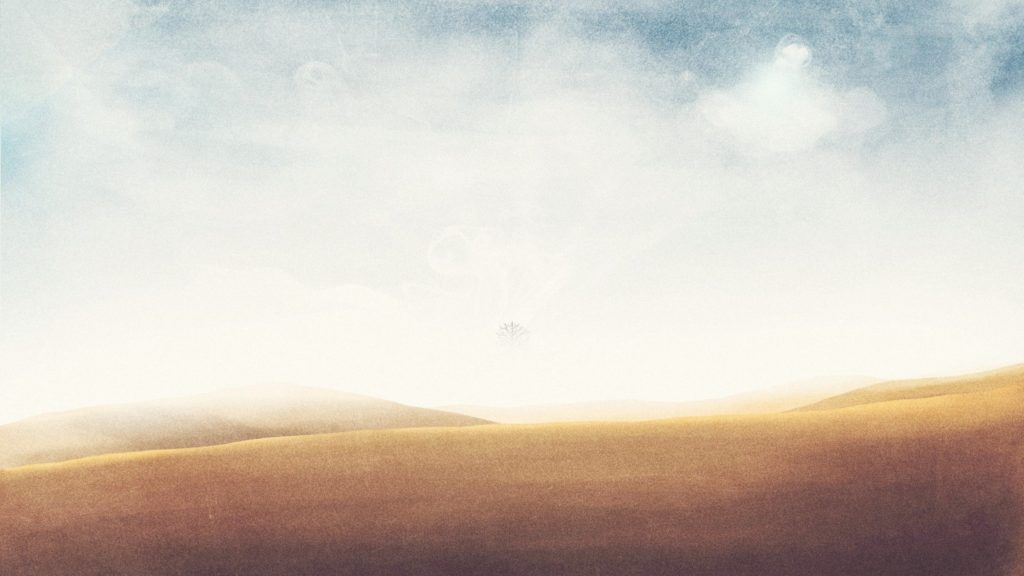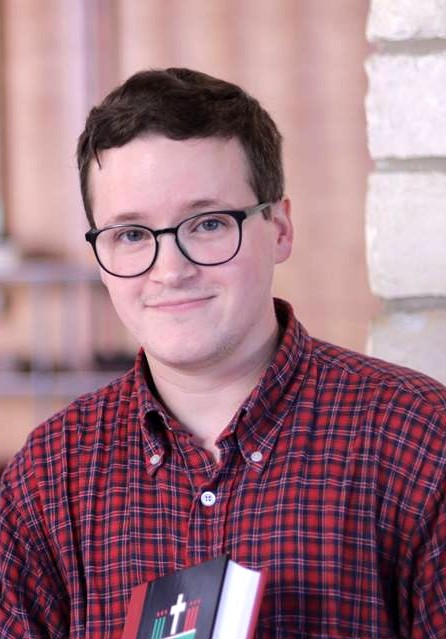
As this Lenten season begins, instead of fretting over what my Lenten discipline might be, I find myself ruminating over and over again – wilderness. Translated from the Greek ἔρημος, meaning “desert” or “desolate place,” wilderness conjures images of longing, death, and exhaustion.
I wonder about the wilderness the Hebrews pass through in their exodus from Egypt, a wilderness with creatures so fearsome that God feeds the terrible Leviathan to them in Psalm 72. The wilderness, as the Rev. Melanie Jones pointed out in her Black History Month keynote address, where Hagar and Ishmael find the threat of death and then, quite surprisingly, succor. The wilderness that the newly baptized Jesus encounters as he prepares to step into God’s call. And then my own wilderness: the wilderness I trek through as a trans person and as a seminarian in discernment, feet sinking into hot desert sand with no clear markers in sight. Tired at times, ferociously determined at others. Thirsty for God’s grace and yet so undeserving.
Frankly, wilderness has never held much appeal to me. One of my fellow seminarians refers to me as an avid indoorsman, and she’s not wrong. I shudder at the thought of desert places, dry land that stretches onward. It evokes in me a sense of dread. It is the in-between towns we drive through in the Arkansas Ozarks as we aim for the city. It is that desert border in the south of Texas. It is that moment when you are honest with yourself and weep, “I am trans.” And there is no turning back, no matter how painful, how hard it can be. It is the necessary places we go to prepare us for where we are headed. It can be frightening – it can be illuminating – full of the could be’s and should’ve beens.
And yet there is something to be said for the wilderness.
In Nnedi Okorafor’s science fiction novel Who Fears Death, the protagonist, Onyesonwu, is sent off into the desert even before she is born. Onyesonwu is Ewu, meaning that she is neither of the Okeke or Nuru people but rather someone in between, a person birthed in violence, and, as a result, thoroughly despised. In post-apocalyptic Sudan, the Ewu are condemned to the desert, to the wilderness – and the wilderness is a place of death. And yet it is there, upon meeting another Ewu for the first time, that Onyesonwu finds solidarity. She befriends a boy named Mwita, learns with him, and comes to love him.
One conversation the two children have remains in my mind years after having read the novel. They are sitting together on the steps of Onyesonwu’s house, and Mwita says to her, “If you spend enough time in the desert, you will hear it speak.”
I find myself transfixed, reading and remembering this simple line over and over again: If you spend enough time in the desert, you will hear it speak.
I wonder what the desert told Jesus. Was it: “Worship the Lord your God, and serve only Him” (Matthew 4:10)? Was it: This is going to be a path that requires faith? Was it: When you are hungry and exhausted and broken, God will feed you?
During my time in the desert, I have said many things: I am so tired. I am so broken. I am so alone. I am so afraid.
But the desert replied.
As I said, I am weak, the desert said, You are strong. As I said, I am broken, the desert said, You are whole. As I said, I am alone, the desert said, You are a beloved member of the Body of Christ. As I said, I am so, so afraid, the desert said, “Do not be afraid, just believe” (Mark 5:36).
Do not be afraid. Just believe. God holds you in the palm of her hand.
The wilderness is a frightening place to be, yes; and it is a place of transformation that enables us to step into the spaces where God is calling us to serve. It is a place where “the ransomed of God shall return with singing, with everlasting joy upon their heads.”1 It is a place of beginnings, not of ends.
Where is your wilderness?
What might it be telling you as you walk this Lenten path?
1. “A Song of the Wilderness,” Canticle D.
 Caden Campbell comes to Austin from the Episcopal Diocese of Arkansas with his partner, Jennifer Will, and is in his first year of the MDiv program at Seminary of the Southwest.
Caden Campbell comes to Austin from the Episcopal Diocese of Arkansas with his partner, Jennifer Will, and is in his first year of the MDiv program at Seminary of the Southwest.

